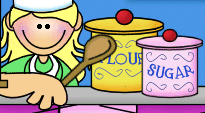hello everyone!
Anusha here! I was looking through some articles on the internet and came across one very interesting one. We all know that every child is unique and different. We as adults have to study these children in order to understand them and raise them up in the correct manner.
Here are some useful tips on how you adapt to your child's needs and character!
Why the harmonious flow in Bonnie Benson's house and the emotional roller coaster at Carla Clayborn's? Is it that Carl is a middle child? Or do her parents lack basic parenting skills? Or peer pressure or single-parenthood? Or unresolved issues from her parent's childhood? We have focused our study of family systems on the multi-faceted environment.
Parents in large families have always known that babies are different from the day they are born. The first modern professionals to acknowledge the tremendous effect of these inborn differences on family interaction were Drs. Stella Chess and Alexander Thomas. After training in traditional psychiatry, they pioneered 30 years of research, which has given us the vocabulary to work with inborn differences
Temperament, clearly visible by the age of four months, affects our lives well into adulthood. Babies differ along a continuum from low to high, on each of the following scales:
Activity Level - From the couch potato to the athlete - one finds it hard to exercise, and the other hard to sit still for long periods.
Sensitivity - From the low sensitivity child who doesn't notice bruises or ear infections, to the highly sensitive one who is miserable because of tags in clothing, or the taste of a different brand of baby food.
Regularity - From those who wake and eat according to an internal alarm clock to those whose body rhythms vary significantly according to interest, activity and emotional state.
Intensity - From the mellow being who smiles and whimpers, to the emotional dynamo, who screams with distress and squeals with delight.
Curiosity/Caution - From those who instantly reach out to explore with their fingers and feet to those who first watch - until a situation becomes thoroughly familiar.
Adaptability - From those who move readily through a routine day, to those who continually struggle with change. The latter not only need extra transition time both to and from waking, bathing, meals, home, daycare, but resent intrusion on their physical boundaries necessitated by diaper changes, car seats, etc. Given the effect of minor transitions, a new daycare or new sibling means.....
Frustration Tolerance - (or Persistence) - From those who naturally work for long periods (to reach a toy or get their shoes on) to those who back off or plead for help after a brief effort.
Distractibility - From those who are easily soothed out of distress by a cooing parent (or later to look up from toys because someone walks into the room), to those who remain focused on their original project, whether crying or playing. Mood - From those who are usually sunny, to those who are generally grouchy. There is some controversy about this last trait. Does it stand alone? Or does it reflect A) other traits - such as adaptability and frustration tolerance and B) how comfortable this baby is in its environment.
There is no such thing as a good or bad temperament. Babies (to say nothing of children and adults!) thrive with Goodness of Fit - that is, with a reasonable match between their temperament and their environment. However, any trait can become a hazard. For example, in this fast changing culture, we value high adaptability. But those of fast adapting temperament can get to the end of the day (or a decade) and realize they have adapted so readily to their surroundings that their own personal needs have slipped by unseen. On the other hand, those who by nature are slow to adapt, can either become overwhelmed by demands for change, or can become natural planners, who learn to respectfully pace the amount of change in their lives.
To live and work optimally with children, we need to integrate both nurture and nature; We need to adapt interaction to the inborn characteristic of each individual. Needless to say, this task will be more challenging to those of us who need extra time to adapt to change! Are you wondering about your child's temperament? A Family Resource provides inborn temperament assessment and consultation.




